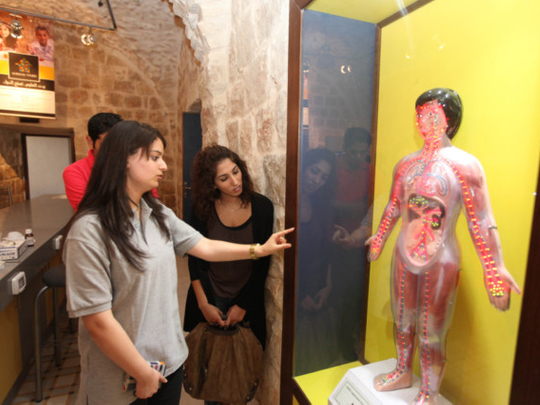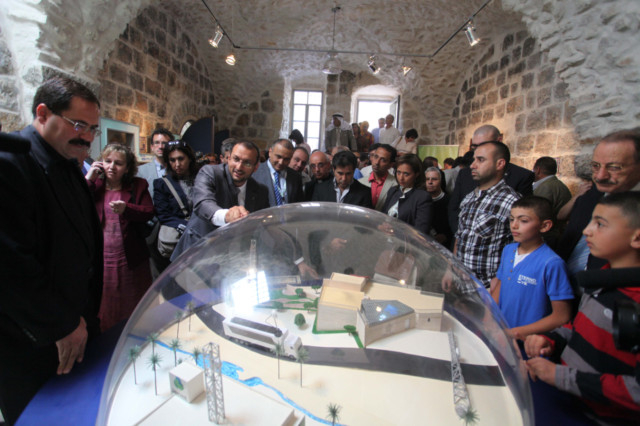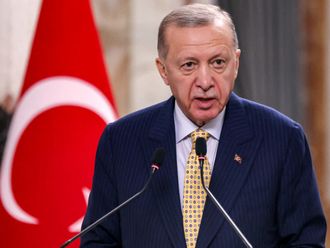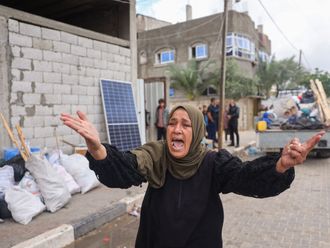
Recently, Khalil Shraiteh, a young Palestinian, found a bug in Facebook’s coding that allowed him to post on any user’s wall, even if the two were not friends. Shraiteh claimed that he sent multiple e-mails to Facebook about this problem and after having received a response that it was not a bug, decided to prove his point by hacking into and posting on Facebook co-founder Mark Zuckerberg’s wall.
Despite this being a major breach — the implication being that spammers could post to multiple user accounts without being friends with them — Facebook did not compensate Shraiteh in any way, which it would normally do for so-called “white hat” hackers who identify security flaws in its systems.
Instead, Facebook disabled Shraiteh’s account and noted that he was not eligible for the minimum $500 (Dh1835) payout because he violated Facebook’s terms of service by infringing on the privacy of users he was not friends with.
This incident not only propelled Shraiteh to a meteoric rise to prominence in the world of social media, but also brought much focus on Palestinian youth and their latent IT and innovative talents.
The question that begs itself is, does one swallow make a summer or is this just one isolated incident of genius?
Dr Sabri Saydam, adviser to Palestinian president on Telecommunications & IT, who is at present involved in numerous youth-related initiatives has this to say — “The world has turned into a global village, thanks to the internet. Khalil [Shraiteh] has demonstrated that fact by riding a big geographical distance to bring Facebook within an inch of collapse. He is representative of the energy of Palestinian youth and the determination they have and their ability to be determined to go against all odds to deliver.”
Engineer Arif Hussaini, founder and director of “Al Nayzak” — for supportive education & scientific innovation, takes a more realistic view, “Khalil is an exception but much still needs to be done to nurture young entrepreneurs and their innovations.”
Hussaini has a somewhat similar story, as he was rejected by Palestinian universities, although he had obtained maximum marks in physics and mathematics. Against all odds, he opted for a vocational track, majoring in radio and television electronics. Thereafter, he was accepted outside of Palestine to pursue a masters degree in applied physics and on completion, secured a lucrative position with an international high-tech company.
However, he gave it all up to return to Palestine to dedicate his life and energies, not only to support but to actively nurture the talent of youth.
Being a manifestation of the “failed” official education system, he explains, “You can’t pick fruit from a tree that does not exist. We applaud and honour talented persons, but to plant the tree of sustained and systematic innovation, we have to start from an early age, which can only be done through a reformed education system. In fact, we find that all our innovations, which bud in the fields of science and technology, begin to disappear after the recognition ceremony.” Stressing that, “It’s no wonder that the most creative applicants to Al Nayzak programmes are generally those who drop out of the educational system.”
With humble beginnings in 2001, Al Nayzak was established by a group of young Palestinians who discovered the joy of knowledge and science after they themselves had suffered from an educational system that depends on rote learning. Today they operate four offices in Ramallah, occupied Jerusalem, Gaza and the Science and Technology House in Birzeit.
Al Nayzak takes a holistic approach in which talented children join at the age of ten through the incubator programme. Thereafter, they progress to eighth grade and continue in the Young Researcher Programme to work on innovative community participation, or join the Palestinian Science and Technology Entrepreuneship Programme (STEP), if they are interested in research and development in applied science and engineering. Finally, after high school, young Palestinians with original ideas join, either Made in Palestine or Made in Jerusalem programmes.
Hussaini says, “We are a knowledge-based organisation and we are thus sustainable through various partnerships with international, regional as well as local entities. Thousands begin in the incubator programme, which diminishes to hundreds in the next one and we finally end up with tens that really succeed in establishing companies with the capability of translating the innovative idea into business.”
Talking about success stories, Hussaini points out:“Three young Palestinian scientists from Al Nayzak recently returned from training at Nasa, and earlier eight of them enrolled in an intensive teaching programme in Washington’s Air and Space Museum, a first and the beginning of a programme that nurtures creative students’ participation in the scientific world. With financial and technical support, these students went on to become winners in The Palestinian Science and Technology Entrepreneurship Programme (STEP 2013).”
A notable success story is that of Ahmad Ramahi and his business partner, Hassan Jaddeh, who with the support of Al Nayzak were able to develop an innovative idea — transforming every white surface into an interactive educational platform — to an industrial business, “Concepts”, that now produces and markets an idea turned into a product in the local and Arabic markets.
Talking about the IT sector in general, Hussaini explains: “All joint ventures with Israel have failed. Peace through IT is an illusion. Many donors were interested in this, as it was a nice way of promoting a 5-star occupation. However, the situation today is that about 95 per cent of Palestinians in the IT sector have become salespersons for Israeli importing companies.”
Adding another success story that shows the way, Hussaini says: “Marwan Totaf of Bisan Accounting Systems took 12 years to develop a financial system that not only competes with Israeli systems, but is much superior. Even the Palestinian Authority is using it now.
“This is what we have to do. We have to outsource research and generate funds from our own capabilities as we don’t have mechanisms to support and produce geniuses. Innovation is 1 per cent and 99 per cent is related to hard work and a passion to succeed.”
Hussaini makes a broad sweep, stating: “In Palestine we have fashions and slogans with nothing tangible on the ground. At present entrepreneurship and innovation is the in-thing with 76 NGOs springing up in the last three years to address this, whereas Al Nayzak has been a pioneer and operational since 2003. Before this, the trend was women and gender and prior to that it was democracy and human rights. These fashions last for about three years, with knowledge, programmes and visions disappearing.”
Hussaini points out that although he is a strong critic of the educational system, he is not all talk, but actually doing something. “I have just authored a special learning unit for the official curriculums of fifth and sixth grades in thinking technology, which is a first in the Arab world and in June of this year Al Nayzak opened a Science and Technology House, a first in Palestine, at the old city of Birzeit where the public, especially schools, visit to view exhibitions and be possibly inspired by what’s on show.”
Hussaini concludes by pointing out, “Technology is not only about computers and entrepreneurship and innovation, it is a slow, long term process and not an event, as some may think.”
Rafique Gangat, author of “Ye Shall Bowl on Grass”, is based in occupied Jerusalem.












